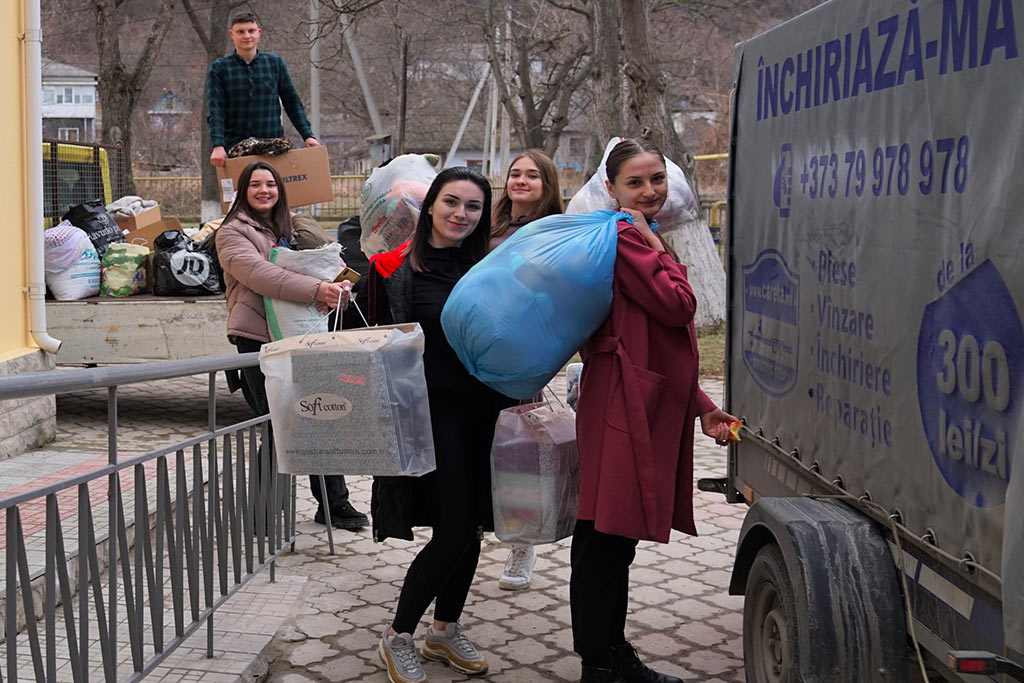Moldovan women stepping up to help refugees from Ukraine
Incredible mobilisation and hospitality. Through volunteers and donations, the people of Moldova have welcomed hundreds of thousands of refugees from Ukraine. But working on the front lines comes at a cost, explains women human rights defender Veronica Teleuca.

It’s been over a month since the war in Ukraine started, and neighbouring country Moldova has received approximately 300,000 refugees. The country and its people have been praised for their hospitality.
“I’m not surprised, because I know people here are very kind and empathetic. But the commitment was incredible and I think everybody outside of Moldova needs to know that everything was done by volunteers and based on donations,” says Veronica Teleuca, national coordinator of the organisation National Coalition ”Life without Violence”.
Huge humanitarian needs
Grassroots organisations and activists were very fast in responding to the huge needs.
“It was obvious from the beginning, that what was first needed was humanitarian assistance—transportation, accommodation, food, bathing facilities and medicine,” says Veronica.
She explains that it was hard to keep up with the rapid changes.
“The first weeks, it was very, very hard to breathe and feel like it was going to be okay and that we would manage.”
Women on the front lines
The National Coalition ”Life without Violence” is an umbrella organisation, gathering 22 members, all with the mission to reduce gender-based violence and support victims/survivors. Since the war began, they have been working full-time to support their members in their efforts in receiving refugees from Ukraine.
“As women working on front lines, you feel how it affects you. Your wellbeing, your capacity—and it’s a lot of work. If one organisation used to work with a category of people, for example victims of domestic violence, now the workload has doubled or even tripled, because they have to do their daily work, the management of the organisation, but also the new work with refugees,” says Veronica.
Veronica explains that organisations need urgent, flexible funding to keep up the work as first responders.
“When women organisations come to you saying ‘this is what’s needed now’, you have to be very flexible based on the needs of the organisation and the people,” she says.
Urgent cash bank
One such need, that The National Coalition ”Life without Violence” has identified, is direct cash support—both to refugees and host families.
“It’s been a big burden for all systems in Moldova, and for people, because Moldova is a poor country and the cost of living already increased in the past two years with the political turbulence and energy crisis,” says Veronica.
Veronica Teleuca is a former participant of Kvinna till Kvinnas international training programme on gender-based violence. The progamme’s goal is to increase the capacity of organisations and authorities to prevent and respond to gender-based violence.